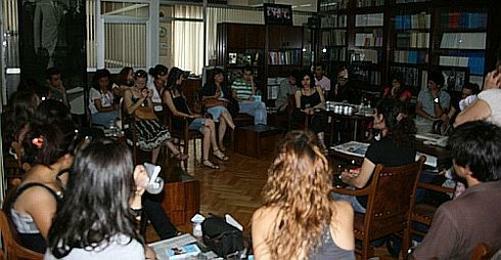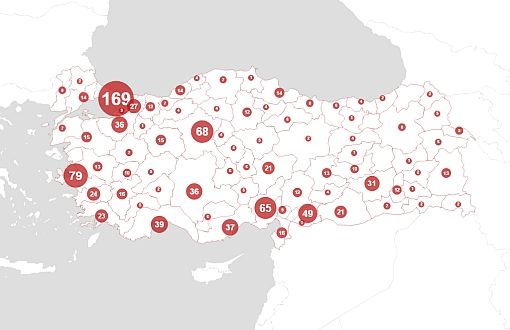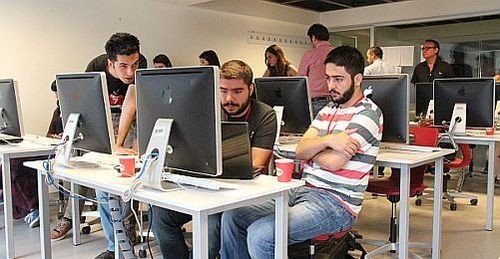On the second day of the journalistic training programme organised by the IPS Communication Foundation and supported by the Swedish International Development Agency (SIDA), the thirty young graduates visited the Turkey Journalists' Trade Union (TGS).
Insecure work conditions
Rüya Özkalkan, president of the Istanbul branch of the union welcomed the trainees. She informed them about the insecure work conditions in the profession, giving as examples the current strike of employees of the Sabah newspaper-atv media corporation, as well as 40 journalists dismissed from the Radikal newspaper.
"Members of trade unions and those working with collective labour agreements always face the danger of dismissal. During the Sabah-atv strike, some journalists who left the trade union out of fear of being dismissed were fired immediately afterwards and they did not seek legal redress. The eight people of the 40 Radikal employees that were in a trade union went to court and received serious compensation. In addition, they continued their careers."
Shaking Özkalkan's hand at the end, the young participants vowed, "As soon as we get a job, we will join."
Importance of rights journalism
The second session of the day was held at Bilgi University's Santralistanbul campus. Prof. Dr. Şebnem Korur Fincancı, president of the Turkey Human Rights Foundation (TİHV), informed the young journalists about the Human Rights Common Platform (İHOP) that her organisation is part of. She also discussed the coverage of rights groups by the mainstream Hürriyet newspaper, saying that a mere six items appeared within a year, and that two of them were manipulative.
"The 42-day hunger strikes in Erzurum and Van were not reported in the mainstream media, nor were cases of maltreatment and torture in prison, or the ban of Kurdish in prisons. As readers who lose faith in the mainstream media, we can use independent communication organisations and rights organisations, that is, rights journalism."
Avoid mainstream clichés and victim language
İsmail Saymaz, reporter for the Radikal newspaper, said that when rights journalism was applied, the relationship with sources was just as important as the political stance. He warned that the truth of a news item needed to be proven, and that journalists should avoid the ideological language of the mainstream media.
"For journalists, appropriating the mainstream media language is as dangerous as using an agitative, whiny language out of a mistaken identification with victim language. Examples of mainstream clichés are 'illegal protest', 'they dispersed without problems', recently 'Ergenekon member', 'coup supporter'. Both ways of writing make the news less convincing." (CU/EZÖ)




















